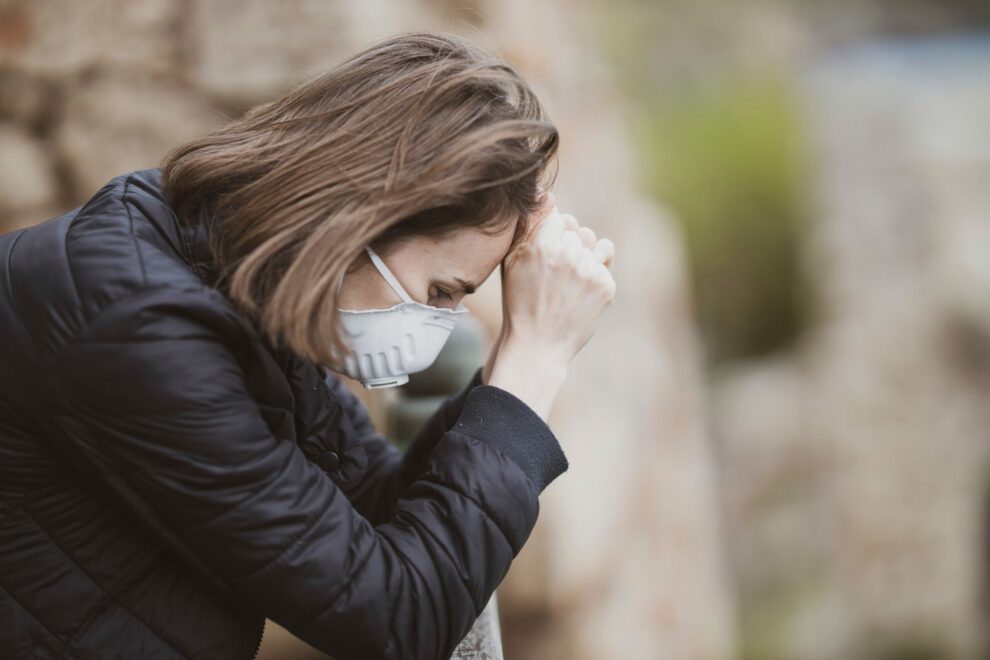An innovative new online learning exchange took place last week on Saturday. Peacebuilders and civil society actors from Libya and Morocco shared expertise and knowledge about the importance of mental health after natural disasters.
The online exchange not only shed light on the vital role of mental health but also on the role of civil society actors in maintaining psychological support during disasters.
The Moroccan group, which included representatives of civil society organizations and university researchers, conversed with Libyan experts to learn about their work and mental health initiatives after Libya’s flooding disaster.
Zakaria El Hamel, president of Moroccan organization Youth for Peace, and Musa Ali Wantiti, president of the Libyan Tizgar foundation were key member participants. Through their foundations, Zakaria and Musa have created a space for Moroccan and Libyan civil society actors to exchange knowledge, expertise, and networks.
The exchange was planned as an online conference titled “Mental Health for All.” The event was an opportunity to network and learn from the two organizations’ work and engagement during and after the event.
Participants and representatives from Libyan civil society shared their experiences working on mental health after Libya’s recent disaster. They have created programs and groups to support victims socially and mentally. The organizations’ objectives are to maintain peace and avoid mental crises and shocks that can lead to further social and psychological disasters.
The Libyan work also supports victims more effectively by raising awareness and creating healthy spaces to communicate. They remove the veil from mental health, a topic still considered taboo, during and after disasters in the Maghrebi context.
The Moroccan research group shed light on the importance of mental health as a basic tool for building a healthy and stable society.
Abdellah Lahsaini, a Moroccan participant, confirmed that though we can assess and discern the severity of numerous ailments, the ramifications of mental health disorders carry a gravity reminiscent of mortality itself, deeply affecting not only the individual, but also their family. At times, its influence is even more profound. Regrettably, mental well-being doesn’t often receive the prime focus it undeniably merits in public health directives. With urgency, we beseech both global and national bodies to prioritize mental health.
Ahmed Qaliwan, member of the General Assembly of the psychosocial support team in Libya, explained that the Libyan team met regularly with victims.The organization supports them according to their possibilities and means. He found the online sessions and the mental health online event to be wonderful. Qaliwan praised the inclusion of a diversity of experiences from Libya and Morocco.
Qaliwan emphasized that civil society should put more pressure on government and institutions to be involved in mental support for disaster victims. He said that all specialized rescue teams, state actors, and civil society actors should provide victims with all available support. These same actors must intensify awareness about psychological and mental health.
The feminist perspective of mental health challenges was highly represented in the event through the participation of the three specialists: Dr. Sharifa Mayouge, professor of psychology at the College of Education, Maryem Al Wweynet Zinab, legal consultant and executive director of the Human Rights Organization for Transparency and Reform, and Moftah Mohammed.
The three specialists shed light on the key position women hold in mental health recovery. Women are at heightened psychological risk during and after disasters, as they are disproportionately affected by family violence and traditionally have more caring responsibilities.
Despite this, they can be the cornerstone of mental support due to their excellent communication abilities. If women receive the appropriate means in constructive environments, they can increase their role as important actors in establishing peace and improving mental health outcomes..
The online event “Mental Health for All,” which is funded by IFA (Institut fur Auslandsbeziehungen), concluded with inputs for the future creation of platforms for dialogue and exchange. The long term goal of these platforms is to provide help to victims of earthquakes and floods.
Source : Morocco World News

















Add Comment